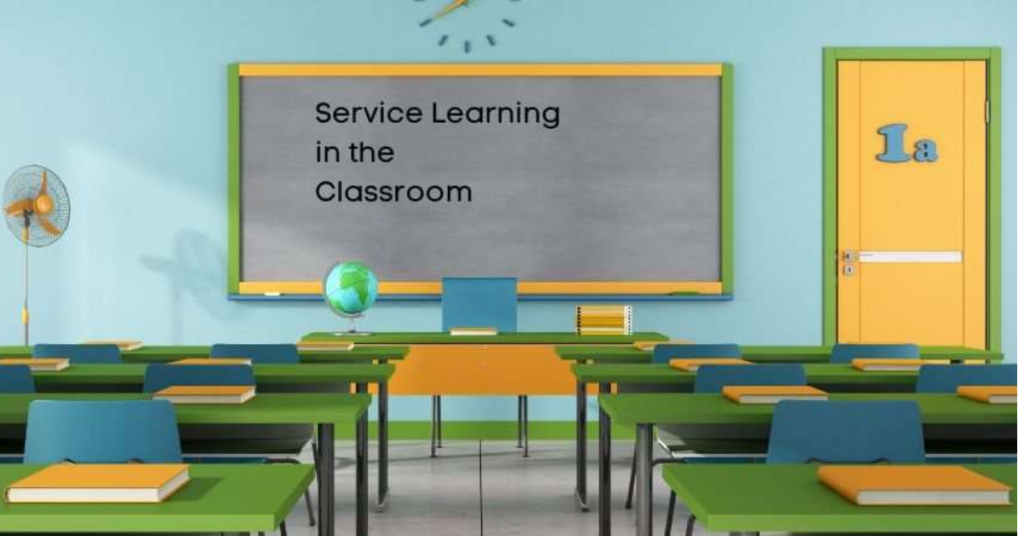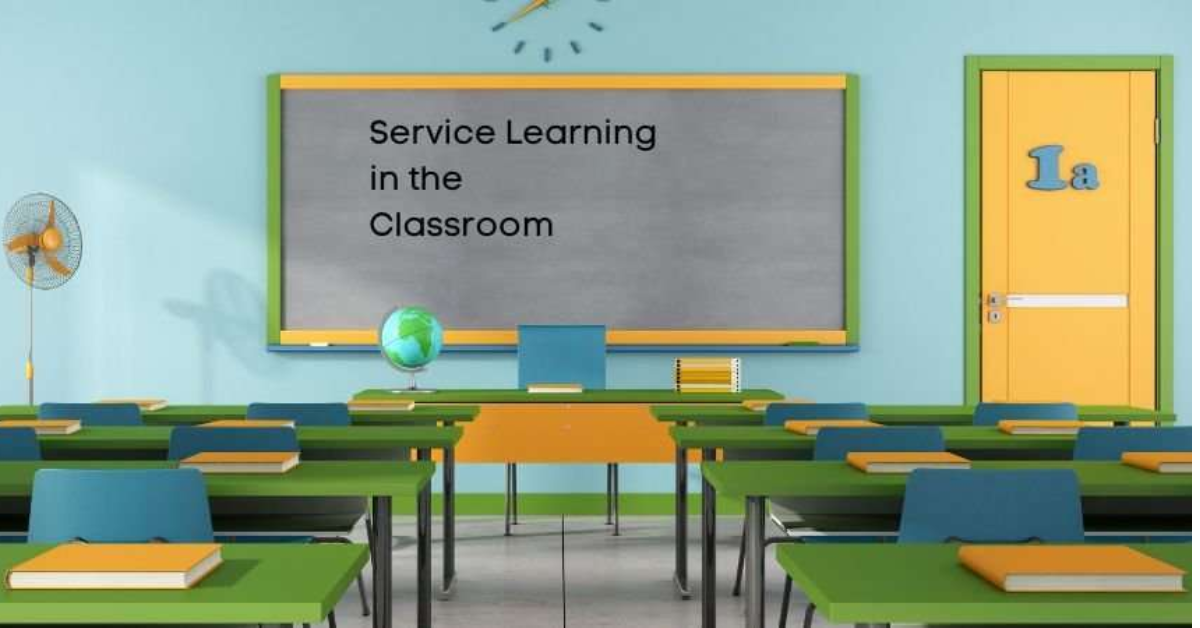University service-learning programs are a dynamic educational approach that intertwines academic instruction with community service, creating a rich environment for experiential learning. These programs not only enhance students’ educational experiences but also address vital community needs. In this article, we will delve into the essential characteristics of university service-learning programs, discussing their definitions, benefits, key components, and successful implementations in various institutions.

Defining Service-Learning
Service-learning is an educational strategy that combines academic learning with meaningful community service. It allows students to engage in service projects that address community challenges while reflecting on their experiences in relation to academic theories. Unlike traditional volunteer work, service-learning is purposeful and structured, designed to connect service activities with specific learning outcomes that promote both educational and social growth.
Core Principles of Service-Learning
- Reciprocal Benefits: A hallmark of service-learning is its emphasis on mutual benefit. Both students and the communities they serve gain from the experience—students acquire practical skills and insights, while communities receive valuable services and support.
- Reflective Learning: Critical reflection is fundamental to service-learning. Students analyze their experiences, linking them to academic concepts, which enhances their understanding and encourages personal development.
- Civic Responsibility: Service-learning promotes civic engagement, inspiring students to take an active role in their communities. This involvement fosters a deeper awareness of social issues and motivates students to contribute to positive change.
Benefits of University Service-Learning Programs
For Students
- Enhanced Educational Experience: Service-learning enriches students’ learning by providing hands-on opportunities to apply theoretical knowledge in real-world settings. This practical engagement helps solidify their understanding of academic content.
- Skill Development: Students develop essential skills through service-learning, including leadership, teamwork, communication, and problem-solving. These competencies are crucial for personal growth and career success.
- Increased Engagement: Students involved in service-learning typically show higher levels of engagement with their studies. The connection between service and academic work fosters a sense of purpose and motivation.
- Career Readiness: Service-learning experiences enhance students’ resumes by showcasing their practical skills and commitment to community service. Employers value candidates with real-world experience and a demonstrated capacity for leadership.
For Communities
- Addressing Community Needs: Service-learning programs often focus on pressing social issues within communities. By collaborating with local organizations, universities can provide essential services in areas such as education, health, and environmental sustainability.
- Building Community Partnerships: Service-learning fosters collaboration between universities and community organizations. These partnerships can lead to long-lasting relationships that benefit both parties, facilitating future projects and initiatives.
- Empowering Local Residents: Engaging community members in service-learning projects empowers them to participate in their own development. This collaboration fosters mutual respect and understanding between students and the community.
For Universities
- Strengthened Community Reputation: Universities that engage in service-learning demonstrate a commitment to social responsibility, enhancing their reputation among prospective students and community stakeholders.
- Innovative Curriculum Development: Service-learning initiatives often inspire innovative course designs that integrate community engagement, making education more relevant and impactful.
- Research Opportunities: Faculty members can conduct research related to service-learning, contributing to scholarship on pedagogy, community engagement, and social issues.
Key Components of Effective Service-Learning Programs
To ensure the success of service-learning programs, universities should focus on the following key components:
1. Strong Community Partnerships
Effective service-learning programs require robust collaborations with local organizations. Universities should work closely with community leaders to identify needs and develop projects that align with both educational goals and community priorities.
2. Clear Learning Objectives
Establishing clear learning objectives is essential for service-learning programs. Faculty should develop specific goals that connect the service experience to course content, ensuring that students achieve academic outcomes alongside their community service.
3. Structured Reflection Activities
Incorporating structured reflection activities is vital for effective service-learning. These may include journals, group discussions, or presentations. Reflection helps students process their experiences and relate them to academic theories, enhancing critical thinking and understanding.
4. Assessment and Evaluation
Effective assessment strategies are necessary to evaluate the impact of service-learning programs. It is essential to assess both student learning and community outcomes to measure success and identify areas for improvement.
Examples of University Service-Learning Programs
Numerous universities have successfully implemented service-learning programs tailored to their unique community contexts. Here are a few notable examples:
1. University of California, Berkeley
UC Berkeley’s Public Service Center connects students with various community organizations through service-learning courses. Students engage in projects that address local issues such as homelessness, education, and public health, enriching their academic experience while serving the community.
2. Duke University
Duke University’s Service-Learning Program offers students opportunities to engage in community-based research and service projects. This program emphasizes interdisciplinary collaboration, allowing students from various fields to work together on complex social challenges.
3. University of North Carolina at Chapel Hill
UNC’s APPLES Service-Learning Program integrates community service into academic curricula. Students participate in projects addressing various community needs while reflecting on their experiences to understand their societal impact.
4. University of Michigan
The University of Michigan’s Ginsberg Center promotes civic engagement and service-learning through partnerships with local organizations. Students engage in projects addressing issues such as poverty, education, and public health, developing vital skills and knowledge.
Challenges and Solutions in Implementing Service-Learning Programs
While service-learning programs offer numerous advantages, they also face challenges. Universities should consider the following obstacles and potential solutions:
1. Resource Limitations
Challenge: Many universities struggle with budget constraints that limit support for service-learning initiatives.
Solution: Universities can pursue grants, establish partnerships with community organizations, and seek alumni contributions to secure funding for service-learning projects.
2. Faculty Resistance
Challenge: Some faculty may resist integrating service-learning into their curricula due to concerns about time commitments and resources.
Solution: Providing professional development opportunities and showcasing successful service-learning models can alleviate concerns and inspire faculty to embrace these approaches.
3. Low Student Interest
Challenge: Some students may hesitate to participate in service-learning due to time constraints or lack of awareness.
Solution: Promoting the benefits of service-learning through orientation programs, workshops, and student organizations can increase interest. Highlighting success stories from past participants can further encourage involvement.
Conclusion
University service-learning programs play a vital role in fostering engaged and responsible citizens who understand and address community needs. By merging academic learning with meaningful service experiences, these programs create valuable opportunities for personal and professional growth while generating positive societal impacts. As universities continue to develop and enhance their service-learning initiatives, they contribute significantly to building a culture of civic engagement and social responsibility. Through collaboration, critical reflection, and a commitment to addressing community challenges, universities empower both students and communities, shaping a brighter future for all.
